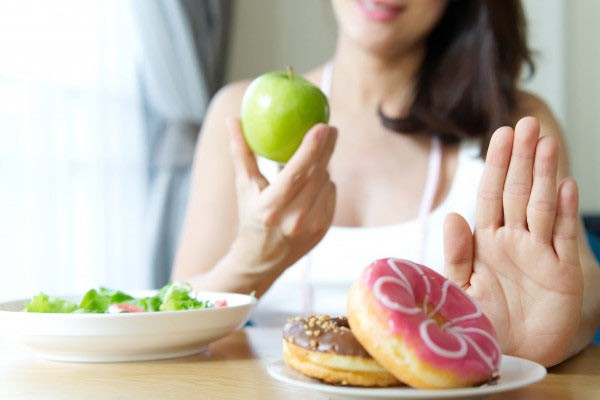Can Lollies Be as Healthy as Dried Fruit? New Study Has the Answers

Which is healthier: lollies or dried fruit?
Multiple observational studies have shown that greater fruit consumption is associated with a lower risk of a host of health issues, including cardiovascular disease, type 2 diabetes and high blood pressure.
You might say, why is this? Well, fruits are often rich in fibre. They have a very low energy density (low-calorie content per weight of food) which means they are quite filling (or satiating) sources of nutrients that allow us to control our hunger better and subsequently control our body weight better, which is a significant preventative of the health issues mentioned above. But, of course, it could also be that people consuming more fruit also engage in more health-seeking behaviours such as ample exercise, adequate sleep, and minimal alcohol.
Nonetheless, it seems like consuming fruit within your diet is a pretty good idea. Recently, this has led to the recommendation to consume dried fruits as a shelf-stable, cost-effective, and readily accessible alternative to fresh fruits.
Researchers wanted to see if the same health benefits typically seen with higher fresh fruit consumption could be achieved with increased dried fruit intake in a brand-new study.
They answered this question by comparing cardiometabolic risk factors after consuming either a specified allocation of dried fruits daily OR after consuming a calorie and carbohydrate matched serving of candy.
The researchers predicted that adding 3/4 cups of dried fruits into the participants daily diet would decrease LDL cholesterol (referred to as our bad cholesterol), arterial stiffness and blood pressure compared to when the processed low-fibre candies were added to the diet.

The study layout
The participants engaged in a cross-over trial, which means all participants underwent both of the study conditions in random order.
So, the study procedure was as follows:
- 4 weeks of adding the dried fruit OR the calorie matched candy into the participants’ daily diet
- 4 weeks of a compliance break (washout period)
- 4 weeks of the alternate condition (the other condition not experienced in step 1)
The “dried fruit” condition involved 3/4 cups or 112 grams of dried fruits comprising figs, dates, and raisins. The “control” or candy condition involved fruit flavoured snack gummies in matching the calorie and carbohydrate content of the dried fruits.
What happened
We might think SURELY the dried fruits added to the diet would have resulted in greater health improvements than when the gummies were added to the diet. But gummies and candies are just junk food, right?
Well, not so fast. Contrary to what the researchers expected to happen, consuming the dried fruits daily DID NOT improve LDL (bad) cholesterol, blood pressure or arterial stiffness compared with the calorie/carbohydrate matched control condition which fed the participants gummies.

What does this mean?
It means that regardless of whether foods consumed in the diet are “clean” foods (i.e., the fruits) or “dirty” foods (i.e., the gummies), it’s the overall calorie intake that actually matters not only for managing our body weight but also for managing our health status.
If you consume too many calories (referred to as a hyperenergetic diet), it doesn’t matter whether the calories are coming from clean or dirty sources; it WILL result in increased fat gain (lipogenesis), which can exacerbate health conditions and progression of metabolic diseases.
To really drive home this point, the researchers did a separate analysis of ONLY the participants who GAINED weight during the study (which was not surprising given they were adding calories to their diet), LDL-cholesterol actually INCREASED (worsened).

The take-homes
While adding fruits (including dried fruits) into the diet can assist with meeting recommended intakes for vitamins, minerals, and fibre, if the calories are not compensated for somewhere else in the daily diet, cardiometabolic health benefits are unlikely to be seen, ESPECIALLY if weight gain occurs (in fact can even worsen health status).
Furthermore, adding dried fruits into your diet (without calorie compensation) is no more effective than adding extra gummies/lollies!
Controlling overall calorie intake (and subsequently body weight) is still your best weapon for maintaining or improving health status. What is less important is the foods chosen to meet that intake.
As some general advice, focus your energy on controlling your calories to support your desired body weight or composition FIRST. Once this condition is achieved, THEN work on making that intake “healthy” by having the diet predominantly comprised of fruits, vegetables, lean meats and whole grains.

Jackson Peos has completed a PhD at the University of Western Australia, and has a straightforward approach to nutrition and supplements.
He's completed his BSc in Sports Science, and Exercise & Health, and his BSc (Hons) in Exercise Physiology.
More about Jackson PeosReferences:
- Sullivan, V., Petersen, K., & Kris-Etherton, P. (2020). Dried fruit consumption and cardiometabolic health: A randomised crossover trial. British Journal of Nutrition, 124(9), 912-921. doi:10.1017/S0007114520002007




























